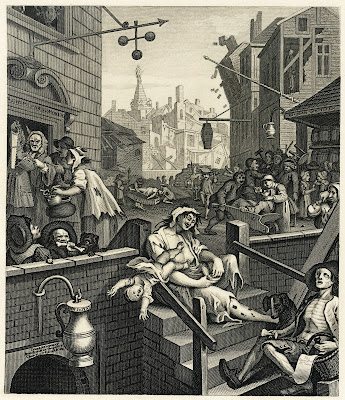 |
| Moses, confronted about his Cushite wife, 10th century, Vatopedi monastery |
A third rebellion followed at Hazeroth, the next camp site. Moses had married a Cushite wife, probably Ethiopian (in Genesis 10:6 Cush means Ethiopia), and this was probably his second wife (his first wife was Zipporah, a Midianite; Exodus 2:16-21). Making this an excuse, Miriam and Aaron spoke against him. They desired equality with him as leaders of Israel. Miriam seems to have been the main culprit and she bore the punishment. It may seem strange that she, being a woman, should have challenged the authority of her brother. However, she was a prophetess and leader of the Israelite women (Exodus 15:20-21).
In the rebellions, God's provisions are rejected and God judges the rebels
 |
| "Rebellion to Tyrants is Obedience to God." First proposed seal of the United States, 1776, depicting God, Moses, and the Egyptians. |
Again, we read that the Lord heard their hostile words. His response was to confirm his choice of Moses (6-8) and then to judge Miriam and Aaron (9-10). There are many parallels between Miriam's rebellion and Israel's craving for meat (Numbers 11:4-35). On both occasions, God's provision (the manna; Moses' leadership) was rejected, and in response, God confirmed Moses' position (by giving him elders and by his word) and judgment fell (the plague; Miriam's leprosy). The author comments about Moses' humility.
True humility consists in a commitment to obeying God's will to the point of self-denial.
 |
| Saint Humility (Beata Umilta (1226-1310 AD)) Transports Bricks to the Monastery by Pietro Lorenzetti (c.1341) Oil on wood, 45 x 32 cm Galleria degli Uffizi, Florence |
True humility consists in a commitment to obeying God's will to the point of self-denial. Such self-sacrifice can leave a man vulnerable and forced to cast himself on God to protect and sustain him. Further, as he strives to serve God, he discovers his own weaknesses and failings, and in that way reaches a proper view of himself. Humility is not a negative quality (devaluing of self) but a positive commitment to service, supremely exemplified in Christ (Philippians 2:3-8).
Moses showed humility in continuing to lead Israel through the desert for forty years, even though it was a burden. He did not defend himself but turned to God, who defends and helps the humble (Psalms 14:6; 149:4; Matthew 5:5; 1 Peter 5:6). On this occasion, the Lord left Miriam and Aaron in no doubt as he upheld his servant Moses. Thus, Numbers records three 'complainings' before Israel was half way to Canaan.
Source: Naylor, Peter John. "Numbers." In New Bible Commentary – 21st Century Edition, eds. D.A. Carson, R.T. France, J.A. Motyer, and G.J. Wenham, pages 181-182. Downers Grove: Intervarsity Press, 1994.














































